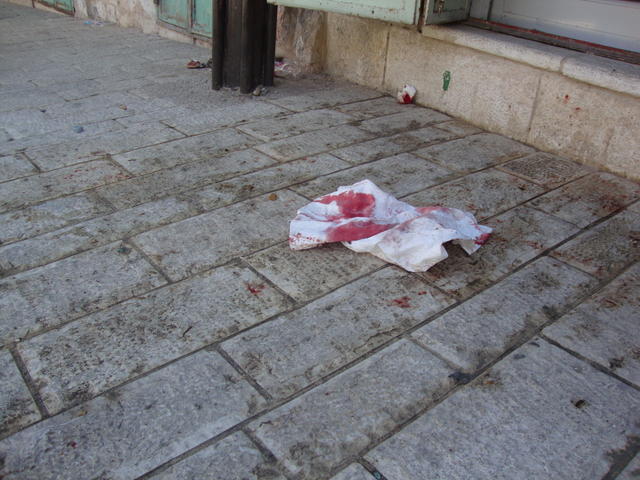Tag: Hebron
-
22 dead and 360 injured in 5th June Naksa protests
06 June 2011 | International Solidarity Movement According to the most recent reports 22 civilians were killed and 360 injured yesterday when Israeli soldiers opened fire at protesters marking Naksa day across the West Bank, Gaza Strip, and the Syrian border. The 5th June this year marked the 44th anniversary of the Naksa, or “setback”…
-
Guardian: Israel accused after Palestinian boys burned by mystery canister
3 June 2011 | The Guardian Military experts say unidentified devices found in West Bank may have contained outlawed white phosphorus. The Israeli army has been accused of leaving dangerous munitions near Palestinian homes after two boys were seriously burnt when they picked up a mysterious silver canister which exuded toxic white fumes. A second…
-
CPT: Settlers Injure Palestinian with Stones
2 June 2011 | Christian Peacemaker Teams For Immediate Release In the old city in Hebron, two boys, ages 14 and 15, residents of Beit Hadassah Settlement, threw multiple stones, some as large as 5 inches, at Palestinians walking past in the market place. One nine year old boy was struck with two stones causing…

